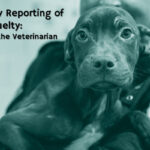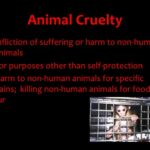As we traverse the intricate tapestry of moral philosophy, few threads provoke as fervent a debate as that surrounding the consumption of animal products. In a world increasingly attuned to ethical considerations, the question—“Is consuming animal products morally wrong?”—remains a contentious issue, rife with emotional and intellectual undercurrents. This discourse intertwines ethical theory, cultural practices, and individual belief systems, prompting us to scrutinize our culinary choices with heightened vigilance.
At the heart of this debate lies the age-old metaphor of the “circle of life,” a concept that reverberates through ecological and philosophical spheres alike. Proponents of animal consumption often invoke this notion, arguing that it reflects the natural order of existence. Indeed, predation and consumption have been integral to the survival of countless species, including humans. Yet within this metaphor, one must ask: does mere existence confer moral justification for the consumption of sentient beings? Alternatively, does recognizing the capacity for suffering in animals compel us to rethink our dietary choices in favor of more compassionate practices?
To approach this dilemma analytically, one must first consider utilitarianism—the ethical framework that posits the maximization of happiness and minimization of suffering as the ultimate moral goal. Through a utilitarian lens, the calculation becomes stark: does the enjoyment derived from consuming animal products outweigh the suffering inflicted upon these creatures? Numerous studies suggest that the meat and dairy industries are rife with systemic cruelty, often involving confinement, inhumane treatment, and premature death. In this light, how can one justify the pleasure derived from a steak or a glass of milk against the backdrop of such profound suffering?
However, the utilitarian approach does not exist in a vacuum. Cultural factors supply a potent counterargument to the abolition of animal consumption. Traditions surrounding food are inextricably linked to cultural identity, familial bonding, and historical heritage. For many societies, cuisine is an expression of love, community, and shared values. The notion that an integral aspect of one’s culture could be branded immoral presents a formidable hurdle for those advocating for dietary changes. It raises the question: can ethical progress coexist with cultural preservation?
Adding complexity to this discourse is the notion of rights-based ethics, which posits that certain beings possess intrinsic rights—independent of their utility to others. If one believes that animals are sentient beings capable of experiencing pain, the moral ramifications become significantly heightened. In this framework, the dismissal of animal cruelty is akin to the violation of fundamental human rights. This perspective compels a reevaluation of practices that rely on the commodification of animals, confronting us with the poignant inquiry: should one’s appetite supersede animal rights?
Then, there’s the environmental dimension to consider. The environmental impact of animal agriculture is profound, contributing to greenhouse gas emissions, deforestation, and water depletion. With climate change emerging as an existential threat, the urgency to confront our eating habits intensifies. Debates around the moral implications of consuming animal products are not solely abstract; they intersect with pressing global issues that affect all inhabitants of this planet. Thus, reducing or forgoing animal products may not just be a personal choice but a collective ethical imperative.
Yet, it is essential to recognize that the moral landscape is seldom black and white. Some advocate for ethically sourced animal products, arguing that humane farming practices can mitigate suffering while allowing for the continuation of cultural traditions that embrace meat consumption. This middle ground presents challenges, however. What constitutes humane treatment, and who determines the standards? Furthermore, are such practices scalable to meet the demand of a global population increasingly inclined toward animal products?
In contemplating these intricate layers of this ethical quandary, one can find solace in the growing number of individuals adopting plant-based diets or seeking alternatives that prioritize sustainability and welfare. The emergence of innovative food technologies, such as lab-grown meat and plant-based proteins, signals a shift in consciousness. These developments hold promise for a future where people can enjoy the flavor and texture of animal products without the ethical baggage they currently carry.
Ultimately, the moral implications of consuming animal products are shaped by an interplay of philosophical, cultural, and environmental considerations. It is imperative that this debate continues, infused with critical thought and empathy, as society grapples with profound questions about the nature of existence and our obligations to fellow sentient beings.
In conclusion, while the circle of life continues to be a compelling metaphor for some, it must be scrutinized in conjunction with the evolving moral landscape. As we navigate this complex terrain, it becomes increasingly evident that a thoughtful approach to our dietary choices is essential—not only for our ethical integrity but also for the wellbeing of the planet and its inhabitants. The debate is not merely about food; it is about a profound reckoning with our values, our responsibilities, and our humanity.








